Partner Institutions
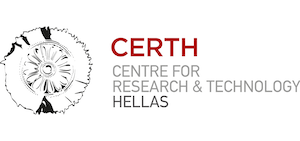
Centre for Research and Technology-Hellas (CERTH) – Coordinating partner
The Centre for Research and Technology-Hellas (CERTH) is a legal entity governed by private law with non-profit status, supervised by the General Secretariat for Research and Technology of the Greek Ministry of Education, Research and Religious Affairs. CERTH, founded in 2000, is one of the leading research centers in Greece, listed among the TOP-20 E.U. research institutions with the highest participation in competitive research grants.
The Institute of Applied Biosciences at CERTH (INAB, CERTH) was established in 2012 from the merging of the former Institutes of Agrobiotechnology (INA) and Biomedical & Biomolecular Research (IBBE). Biomedical Research at INAB-CERTH revolves around the dissection of disease pathogenesis and the development and validation of innovative methodologies, products and services of medical interest in order to facilitate the transition “from bench to bedside”, in line with the concept of precision medicine for maximizing benefits while at the same time minimizing unnecessary costs and toxicities.

National Centre of Scientific Research “Demokritos”
Founded in July 1961 as a Research Centre for Nuclear Research, Demokritos is today the largest multidisciplinary Research Centre of Greece with approximately 180 Researchers in tenured and tenure-track positions and over 500 Research Personnel working in projects funded mainly by grants from State Funds, the European Union and Private Industries.
The Centre consists of five independent Institutes focusing on different scientific fields. It is governed by the Board of Directors and is supervised by the General Secretariat of Research and Technology, which is in the Ministry of Education, Research and Religious Affairs of Greece.
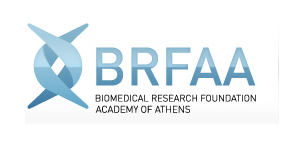
Biomedical Research Foundation of the Academy of Athens (BRFAA)
The Biomedical Research Foundation of the Academy of Athens (BRFAA) is the largest and most recent research center of biomedical sciences in Greece, and one of the first European centers for translational research. The fundamental principle for the creation and operation of BRFAA is the combination of basic and clinical research, which forms the basis for the direct implementation of basic biological research findings into medical applications, i.e. for development of the so-called “translational research” and precision medicine. Overall, 50 research teams are focusing on the understanding of the basic mechanisms and the physiopathology of the immune, cardiovascular and nervous systems, as well as of stem cells, development, ageing and cancer.
BRFAA established the Greek Genome Center, the first and for the moment unique Genome Center in Greece that is fully equipped with the most advanced next generation Illumina DNA sequencers, robotic systems for DNA extraction and sample preparation, single-cell genomics instrumentation appropriate for the study of tumor heterogeneity and a high-power computer system for the analysis and storage of high volume sequencing data. Moreover, the Genome Center possess a clinical Genetics Unit for the evaluation of data and related consultations to patients.
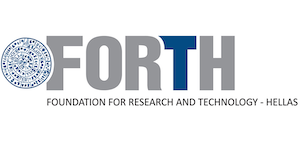
Foundation for Research and Technology-Hellas (FORTH)
The Foundation for Research and Technology-Hellas (FORTH), established in 1983, is one of the largest research centers in Greece with state-of-the art facilities, highly qualified personnel and a reputation as a top-level research foundation worldwide. FORTH reports to the General Secretariat for Research and Technology of the Hellenic Ministry of Education, Research and Religious Affairs. Its headquarters are in Heraklion Crete, and it is composed of eight Research Institutes.
The Institute of Molecular Biology and Biotechnology of FORTH (IMBB-FORTH) is organized in 10 Departments. IMBB seeks to perform cutting edge research in the fields of Life Sciences and Biomedical Sciences. IMBB is one of the most prominent research institutions in Greece, with an outstanding record of scientific achievements, state of the art infrastructure and a broad range of research, innovation and educational activities. IMBB also hosts interdisciplinary research programs and is heavily involved in providing joint graduate programs.
The Institute of Computer Science (ICS) of FORTH has had a relatively long history and recognized tradition in conducting basic and applied research, developing applications and products, providing services, and playing a leading role in Greece and internationally, in the fields of Information and Communication Technologies. Activities of ICS cover important research and development areas, encompassing new perspectives, emerging fields of research and technological challenges worldwide.
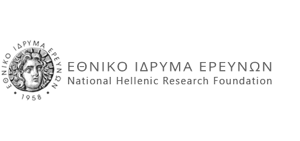
National Hellenic Research Foundation (NHRF)
The National Hellenic Research Foundation (NHRF) is one of the main National Research Centres under GSRT. Today, NHRF consists of three Institutes and one Unit: the Institute of Historical Research (IHR), the Institute of Biology, Medicinal Chemistry and Biotechnology (IBMCB), the Institute of Theoretical and Physical Chemistry (TPCI) and the Unit of the National Documentation Centre (EKT).
The Institute of Biology, Medicinal Chemistry and Biotechnology of the NHRF (IBMCB/NHRF) , was established in 2012 as a result of the consolidation of the Institute of Biological Research and Biotechnology and the Institute of Organic and Pharmaceutical Chemistry of NHRF. IBMCB engages in the development of a modern research approach in the field of Chemical Biology; from design and synthesis of bioactive molecules to animal and clinical studies aiming to solve cutting-edge issues in the areas of Health, Drug and Biomarker Discovery. Additionally, IBMCB has been active in research into the development of anti-cancer drugs, as well as in research on prognostic, diagnostic and predictive biomarkers, in collaboration with clinical teams in Athens and internationally.
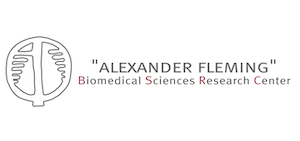
Biomedical Sciences Research Center “Alexander Fleming”
The Biomedical Sciences Research Center ‘Alexander Fleming’ was founded in 1998 and is legal entity governed by private law with non-profit status, supervised by the General Secretariat for Research and Technology (GSRT) of the Greek Ministry of Education, Research and Religious Affairs.The Center has achieved international recognition for its cutting-edge research in understanding the molecular and cellular bases of diseases, such as autoimmune disorders, cancer, neurodegenerative diseases, osteoposrosis, cystic fibrosis, etc., and to the development of new approaches towards counteracting them. The Center is internationally recognized for its translational research and the discovery of signaling pathways, biomarkers and targets, the preclinical evaluation of drugs in animal models and the discovery of new therapeutic approaches.
In the last decade, the Fleming has created cutting-edge infrastructures that provide services for biomedical research, both internally but also externally to researchers, pharmaceutical and biotechnology companies, as well as hospital in Greece and abroad. These include the Animal House and Phenotyping Unit (at present the largest of its type in Greece), as well as the Transgenesis and Cryopreservation, Genomics, Proteomics, Flow Cytometry, Bioimaging, X-ray Microtomography, Endoscopy and Histopathology Facilities.
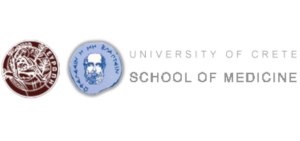
Medical School of the University of Crete
The Medical School of the University of Crete was established in 1983 and admitted its first students in 1984. The Medical School of the University of Crete has always aspired to become a modern teaching and research centre committed to excellence in education and training of students, physicians and biomedical scholars. Since its inception, it has established a great number of activities and interventions in education, research, and health care and has collaborated with scientific and social sectors in Greece and abroad.The School has achieved international recognition, as evidenced by the participation of several of its faculty members in the executive boards, administrative committees and councils of European or World scientific associations and professional organizations.
The University Hospital of Heraklion is closely connected to the School of Medicine. Its main functions are to provide outstanding secondary and – mainly – tertiary specialized health care to the people of Crete and the southern Aegean islands, to provide the highest level of clinical training and education to the medical students of the University of Crete and the nursing students of the Technological Educational Institute of Heraklion, to provide medical residents (full clinical and laboratory training residency programs in all medical specialties plus a great number of sub-specialties) and to provide Continuing Medical Education programs to medical specialists and health professionals.

“ATHENA” Research Center
“Athena” Research Center (ATHENA RC) is the only research center in the country oriented toward technologies and application of Informatics. ATHENA RC develops knowledge management and information systems technologies for large-scale and data-intensive applications for a wide range of digital resources. The vision of ATHENA RC is to serve the full spectrum of the research lifecycle, starting from basic and applied research, continuing on to system and product building and infrastructure service provision, and ending with technology transfer and entrepreneurship.
The fundamental role of ATHENA RC is to build knowledge and devise solutions and technologies for the digital society. Its value lies in the unique collection of skills and as well as the wideranging know-how of its researchers and professional staff and its national and international reputation. ATHENA RC has been established as one of the leading EU Research Institutes in big data and open data technologies. This is apparent in the quantity and quality of scientific publications in those fields and from its success in obtaining competitive funding from EU and national programs.

Hellenic Pasteur Institute (HPI)
Established in 1919, the Hellenic Pasteur Institute (HPI) has a long tradition in biomedical research and a commitment to Public Health Services. HPI is a private, non-profit organization supervised by the Ministry of Education, Research and Religious Affairs and the Ministry of Health and Social Solidarity. HPI functions under a Bilateral Agreement between the Greek Government and the Institut Pasteur in Paris. As a member of the International Network of Pasteur Institutes, HPI maintains scientific collaborations with the Institut Pasteur in Paris and other network members and constitutes the forefront Institute of the network in the Eastern European region.
HPI’s main objectives pertain to activities in: (i) Basic/applied biomedical research with emphasis on infectious, autoimmune and neurodegenerative diseases, (ii) Public Health via accredited National Reference Laboratories in infectious diseases, (iii) development, production, storage and distribution of vaccines, biological and therapeutic agents, according to National Demands set by the Greek Authorities, (iv) the provision of diagnostics services and (v) education/training in fields related to HPI’s activities.
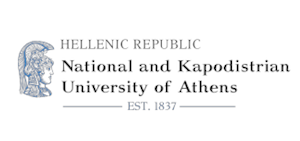
First Department of Pathology, Medical School of the National and Kapodistrian University of Athens
The First Department of Pathology belongs to the Medical School of the National and Kapodistrian University of Athens. In addition to academic activities, it carries out histologic examinations a large number of Hospitals all over Greece. At least 200.000 paraffin blocks are stored in the files of the department, this being the largest tissue collection in Greece. The vast majority of specimens represent malignant neoplasms, among which, solid tumors, hematologic malignancies, musculoskeletal and nervous system tumors, figure prominently. This is because the First Department of Pathology is a reference center for these tumors. Newer diagnostic techniques include, but are not limited to, the analysis of biomarkers in the context of molecular targeted therapeutic approach of malignant neoplasms. During the last five years the department has been actively involved in a European brain tissue bank network (BrainNet Europe) funded by the 6th European Community Framework. Since 2008, the Molecular Diagnostic Unit of the department has been operating, providing services for targeted therapy using various techniques. The Unit’s modern infrastructure and specialized personnel offer high quality Personalized Therapy / Precision Medicine services, while also being constantly certified by external quality control entities.

School of Medicine, Aristotle University of Thessaloniki
The School of Medicine was founded in 1942 and it is one of the four Schools of the Faculty of Health Sciences, Aristotle University of Thessaloniki. Its main educational aim is the dissemination of ethical values that govern the medical practice to students as well as to ensure the young medical doctors so as they acquire all scientific knowledge, which will enable them to diagnose and effectively manage medical problems after obtaining their degree. Moreover, the faculty of the School of Medicine is the stuff of several hospitals as well as other units of the National Health System, and thus provides an important social work.
The School of Medicine has recently established the Centre for Biomedical Research and Education (CBRE). The aim of the CRBE is to support and promote biomedical research and education based on interdisciplinary approaches. The CRBE comprises three Units: the Basic and Translational Research Unit, the Clinical Trials Unit and the Precision Medicine Unit.
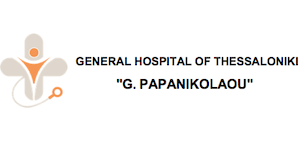
Hematology Department and HCT Unit, G. Papanikolaou General Hospital of Thessaloniki
Under construction.

Hematologic Research Lab of the FirstInternal Medicine and Special Nosology Training Department, Medical School of the National and Kapodistrian University of Athens
Under construction.
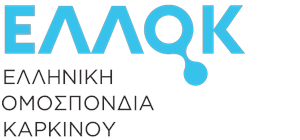
Hellenic Cancer Federation (ELLOK)
The Hellenic Cancer Federation (ELLOK) was established in Athens in 2016, as the national umbrella organization of 40 Cancer Patient Organisations – members, across Greece, representing all cancers, common and rare, as well as pediatric cancer. ELLOK is a volunteer patient-led and governed non-profit legalized umbrella organization. An elected Board of Directors with strong cancer patient majority, governs the organization during a three-year mandate. Board members represent various cancers and regions of the country, bringing to the Board a comprehensive picture of cancer care across Greece. ELLOK’s mission is to reduce the burden of cancer on patients and their families, to advocate for better cancer policy and research for the improvement of patient outcomes. These goals are achieved by joining forces with our members, partners and cancer stakeholders for the support of cancer patients’ and their carers’ individual and collective rights to health and care, ensuring universal and unhindered access to cancer diagnosis, treatment, care, rehabilitation and survivorship care for all cancer patients in Greece. ELLOK’s vision is for comprehensive, timely and affordable cancer care for all cancer patients, assuring excellent diagnosis, treatment, psycho-social support, and survivorship care including rehabilitation and reintegration to social life. The Hellenic Cancer Federation launched in March 2019 the national platform All.Can Greece (allcan.gr), member of All.Can Intl aiming to identify ways to optimize the efficiency of cancer care by focusing on improving outcomes for patients. Its vision is for a world in which patients are always at the heart of sustainable cancer care.



